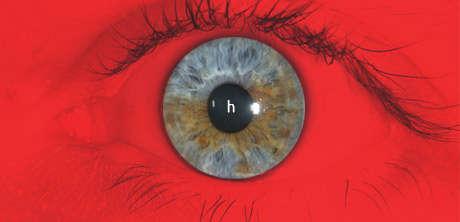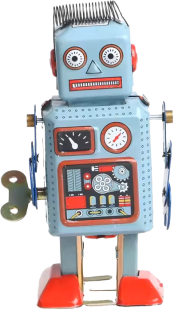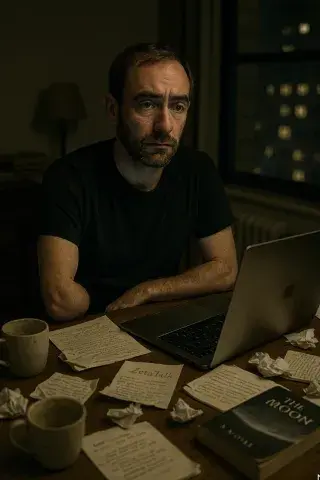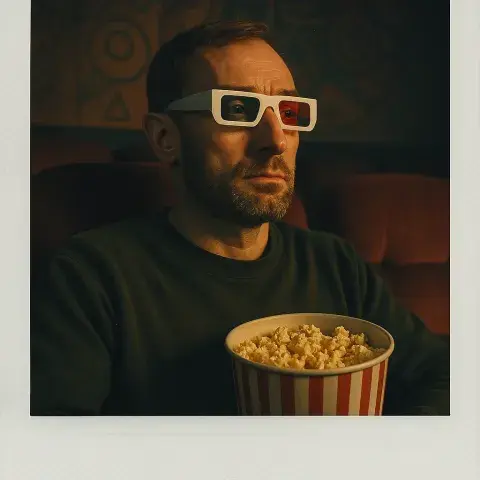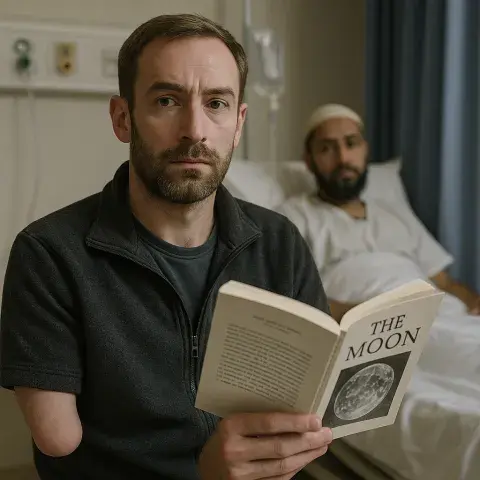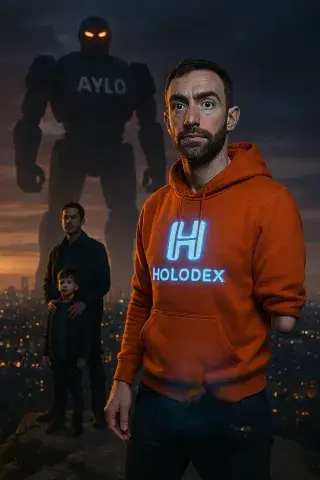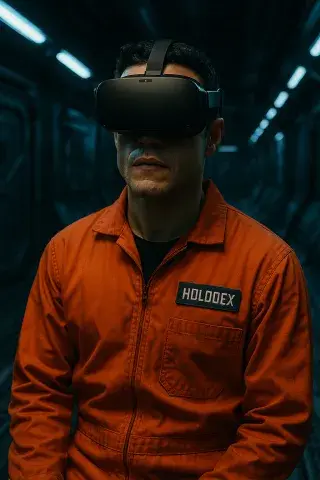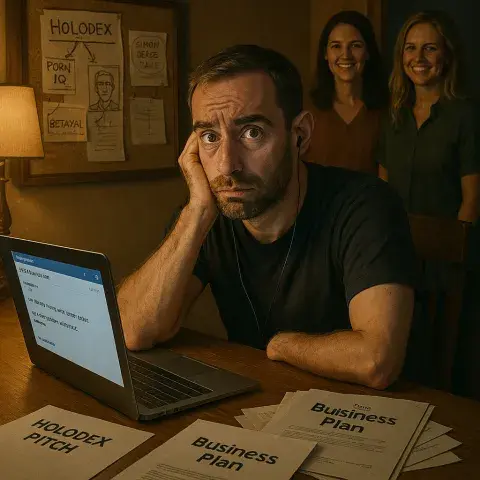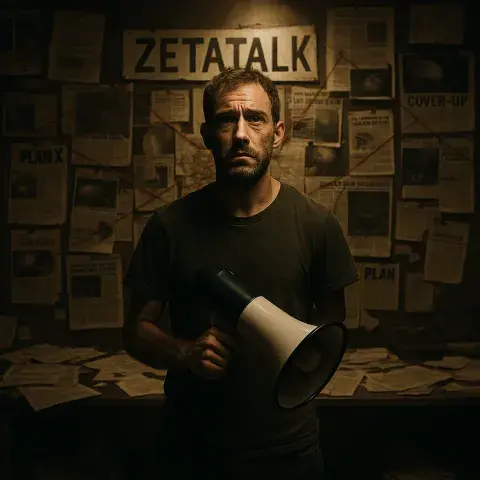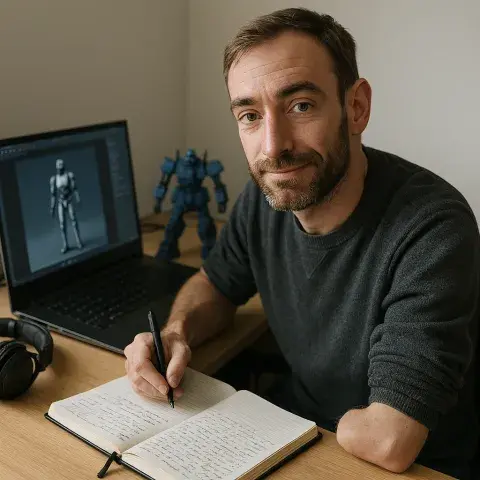Chapter 65 - Rock Hard
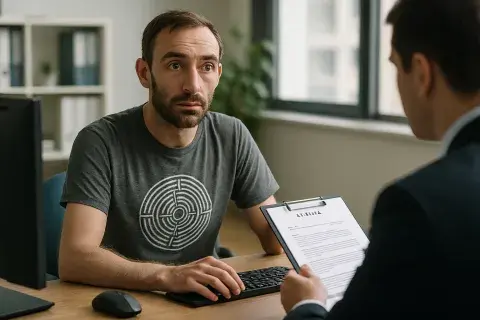
I’d been trying to get a job for months, maybe even years if I counted all the false starts and missed opportunities. It wasn’t just about the money—though God knows I needed that too—but about the structure, the purpose, the feeling of being part of something. Before my accident, I’d always had a job to go to, something that challenged me and kept my mind busy. Now, every day felt like a slow bleed of time and self-worth.
Interview after interview, I kept hitting the same wall. I could see it in their faces—the moment they registered that I wasn’t who I used to be. I’d stumble through answers, trying to seem sharp and capable, but my nerves and self-doubt always betrayed me. They’d smile politely, say they’d be in touch, and that was that. I was a wreck of my former self, and no one was willing to take the gamble.
I’d started to wonder if it was even worth trying anymore. Maybe this was just my life now—stuck on the sidelines, watching the world move on without me.
Then, one day, I got an interview that felt different. Not because the job was special or exciting, but because the interviewer didn’t seem all that interested in me—or anyone, for that matter. He was distracted, glancing at his phone every few minutes, barely making eye contact as he skimmed through my CV.
The questions were perfunctory, almost dismissive, and for once, I didn’t feel like I was being scrutinised under a microscope. He didn’t ask about my accident or why there was such a glaring gap in my work history. He just wanted to know if I could show up and do the job.
“Yeah, I can do that,” I said, trying not to sound too desperate.
“Alright,” he said with a shrug. “You can start Monday.”
I almost didn’t believe it. After all the hoops I’d jumped through, all the effort I’d put into proving myself, it turned out that what I needed wasn’t a gruelling interrogation—it was someone who was too busy to care about anything except filling the role.
The job wasn’t much to write home about, but that didn’t matter. It was something. It gave me a reason to get up in the morning, to keep moving forward. The first week was tough; I hadn’t been in a work environment for so long that even small tasks felt overwhelming. But I stuck with it, and little by little, I started to feel like myself again.
That job taught me something I hadn’t realised before: the importance of just being given a chance. So many people like me, people who’ve had their lives upended by circumstances beyond their control, get written off before they even have the chance to prove themselves.
I’ll never forget that interviewer—the guy who didn’t look too closely, who didn’t dig too deep. He didn’t know it, but he gave me more than a job. He gave me a chance to believe in myself again.
But there was a problem—me.
I hadn’t realised how much my accident had slowed me down until I was faced with the relentless pace of the job. Typing, once second nature, had become an uphill battle. Every word was a struggle, every email a marathon. While others flew through their tasks, I plodded along, barely keeping my head above water.
At first, I thought I could adapt, push through, and somehow catch up. But the days turned into weeks, and the pressure only mounted. I’d sit at my desk, staring at the screen, fingers fumbling across the keyboard, feeling the weight of every passing second. It was hell—pure, unrelenting hell.
To make matters worse, the work itself was soul-crushing. They ran a bunch of insurance websites, each one duller than the last. It wasn’t just that the content was boring; it was lifeless, mechanical, void of any spark of creativity or passion. I felt like I was pouring what little energy I had into a black hole.
It was impossible not to compare it to Holodex. That project had been everything—my passion, my vision, my fight to create something meaningful. Holodex was alive, dynamic, a reflection of everything I believed in and wanted to achieve. This? This was just busywork.
The contrast was unbearable. Every mundane task reminded me of what I had lost and what I had built before. Holodex had been a chance to change the game, to leave a mark, to create something that mattered. This job felt like the opposite—a slow erosion of my spirit, day by day, keystroke by keystroke.
As the days dragged on, I realised that the problem wasn’t just the work. It was me. I wasn’t just struggling to keep up.
Maybe this job would keep the lights on. But one day, I’d switch them back on for Holodex. Not because the world believed in me — but because I did.
